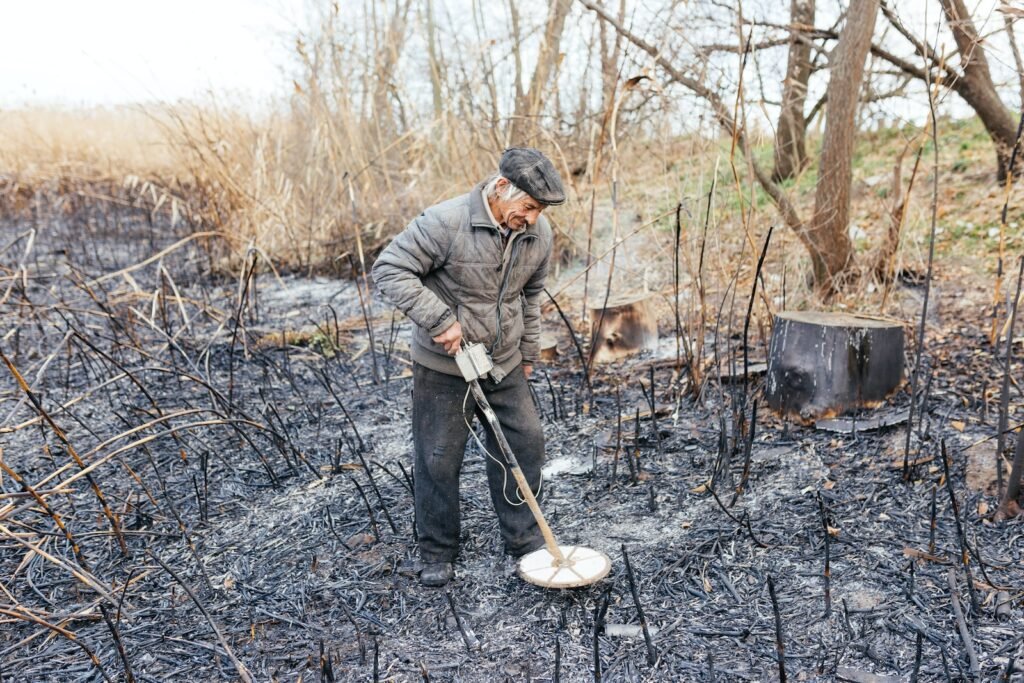[ngg src=”galleries” ids=”2″ display=”pro_tile”]Europe’s Stolen History: Hidden Treasures Revealed
Europe, a land rich in history and cultural heritage, holds countless secrets buried beneath its soil. For centuries, these treasures have been silent witnesses to the rise and fall of civilizations, waiting to be unearthed. Metal detectors and treasure hunters play a crucial role in unraveling Europe’s stolen history, bringing to light artifacts that have long been hidden from the world. However, this pursuit is not without controversy, as it raises concerns about the preservation of artifacts and the illicit trade of valuable finds. This article explores the intricate world of metal detectors, the lure of treasure hunting, the challenges faced in preserving found artifacts, and the delicate balance between access and protection through metal detecting laws.
The Intricate World of Metal Detectors
Metal detectors have evolved from rudimentary devices to sophisticated tools, enabling enthusiasts to uncover hidden treasures with precision. Equipped with advanced technology, these devices can detect metallic objects buried deep beneath the surface, providing a glimpse into the past. From Roman coins and medieval jewelry to ancient weapons and religious artifacts, metal detectors have played a pivotal role in unearthing Europe’s lost history.
Unveiling Europe’s Lost Cultural Heritage
Europe’s rich cultural heritage extends far beyond what is displayed in museums and historical sites. Countless relics lie buried beneath the ground, waiting to be discovered. Metal detectors have been instrumental in unveiling this lost heritage, providing archaeologists and historians with valuable insights into ancient civilizations. From forgotten battlefields to ancient settlements, these artifacts bring to life the stories of our ancestors and contribute to a deeper understanding of our collective past.
The Lure of the Hunt: Treasure Hunters’ Quests
For treasure hunters, the allure of the hunt goes beyond the discovery of valuable artifacts. It is a quest fueled by excitement, curiosity, and a passion for history. Metal detecting enthusiasts spend hours scouring landscapes, guided by historical records, maps, and intuition, in hopes of unearthing hidden treasures. The thrill of uncovering a relic, whether it holds significant monetary value or not, is a reward in itself, connecting the present with the past.
Metal Detecting: A Controversial Hobby
While metal detecting is a popular hobby embraced by many, it is not without controversy. Critics argue that amateur treasure hunters may damage archaeological sites or disrupt the historical context of artifacts by removing them from their original locations. There is also concern that the unregulated use of metal detectors can lead to looting and the loss of valuable historical information. Balancing the enthusiasm of metal detector enthusiasts with the preservation of our cultural heritage is a delicate challenge.
Discovering Ancient Relics: A Race Against Time
Time is the enemy of archaeological artifacts. With every passing year, the chance of discovering valuable relics diminishes as natural decay, urban development, and looting take their toll. Metal detectors provide a valuable tool in the race against time, enabling the discovery of artifacts before they are lost forever. The ability to locate and protect these treasures is crucial for preserving Europe’s history and ensuring future generations can learn from the past.
The Dark Side of Treasure Hunting: Illicit Trade
While many metal detector enthusiasts are law-abiding citizens, there is a dark side to treasure hunting – illicit trade. Valuable artifacts can fetch significant sums on the black market, attracting a network of looters and smugglers. The illegal trade in stolen antiquities not only fuels criminal activities but also robs nations of their cultural heritage. Efforts to combat illicit trade are essential to protect Europe’s stolen history and preserve its cultural identity.
Preserving Found Artifacts: A Delicate Challenge
Once unearthed, the responsibility of preserving found artifacts begins. Proper documentation, conservation, and storage are vital to protect these treasures for future generations. Museums, archaeologists, and metal detecting associations collaborate to ensure that artifacts are safeguarded, studied, and shared with the public. The delicate challenge lies in striking a balance between accessibility and protection, allowing artifacts to be enjoyed by all while preserving their historical and cultural value.
Metal Detecting Laws: Balancing Access and Protection
Metal detecting laws vary across Europe, reflecting the need to balance access to historical sites with the protection of artifacts. Some countries require permits or licenses, ensuring responsible metal detecting and minimizing the risk of looting. Others prohibit metal detecting in certain areas altogether. Striking the right balance is a complex task, as it requires collaboration between archaeological organizations, metal detector enthusiasts, and legislators to develop regulations that promote responsible treasure hunting while safeguarding Europe’s cultural heritage.
Empowering Communities: Responsible Metal Detecting
Despite the controversies surrounding metal detecting, it has the potential to bring communities together and empower individuals to actively engage with history. Responsible metal detecting initiatives, such as organized community searches and collaborations with archaeologists, allow enthusiasts to contribute to archaeological research while adhering to strict protocols. By working hand in hand with professionals, metal detectorists can help uncover Europe’s stolen history while ensuring the preservation of artifacts and the protection of cultural heritage.
Unveiling Europe’s stolen history through metal detectors and treasure hunting is a fascinating journey that has the power to enrich our understanding of the past. The passion of enthusiasts, the challenges of preserving artifacts, and the delicate task of balancing access and protection all play a significant role in this intricate world. As we continue to explore and uncover Europe’s hidden treasures, it is essential to remember the responsibility we bear in preserving our cultural heritage for generations to come.

